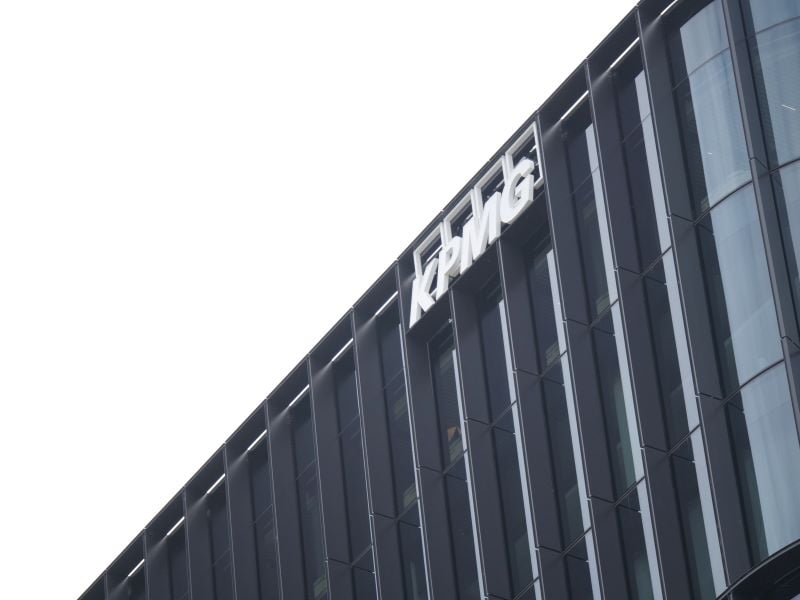And the Oscar for outstanding performance in growing revenue derived from federal contracts during a pandemic goes to … KPMG! What a performance!
Global consulting giant KPMG’s spectacular new offices at Constitution Place overlooks the city and the lake, looming as a prominent feature on the Canberra skyline. Which makes perfect sense, given how prominent KPMG has been in consuming federal government contracts.
In the first two years of the Covid pandemic, KPMG increased the revenue from work performed through federal government contracts by 60 per cent, or more than $123 million dollars.
This is the familiar story of the federal government showering private consultants with money. In the case of KMPG, that story has found its logical expression in its frighteningly fluffed corporate workspace.
As if anyone needed a demonstration of just how fast money is being blasted out of that federal firehose.

InnovationAus has conducted an on-going analysis of the value of federal work being done by the Big Four and tier one global management consultants like BCG and McKinsey.
Through publicly available data under the Murray motion Senate order on the Austender website, we have calculated the value of contract work performed during a particular reporting period.
In the past two years, the growth in the use of consultants has grown at a tremendous rate – and continues to accelerate.
In the case of KPMG, revenue from federal contracts in the last full pre-pandemic year (2019) was $204.4 million. Two years later, for the full 2021 calendar year, KPMG enjoyed revenue from federal contracts of $327.3 million.
That’s an increase of $123 million or 60 per cent for the two years.
It is worth noting – because it is impossible NOT to notice this – that in the first full-year of the pandemic (2020), KPMG revenue from federal contracts grew by 21 per cent to $247.9 million, but in the second full year of the pandemic (2021) KPMG federal contracts grew by 32 per cent (an increase of $79.4 million in a single calendar year.
The growth rate is not only staggeringly high, but also accelerating. Which means KPMG is gonna need a bigger building.
So where are the especially bright spots for KPMG in this already intensely bright story?
Well, you could look at the 430 per cent growth that KPMG enjoyed from within the federal Department of Health over the first two years of the pandemic. But that would be unfair because KPMG’s 2019 revenue from Health was so small ($2.7 million) as a proportion of its overall federal revenue. (KPMG would need to engage a crack team of its own forensic accountants to find that line item.)
Still, it must be heart-warming for the partners to see that teeny $2.7 million Health department acorn turn into $14.3 million two years later in 2021.
But if you are looking for a bright spot that has the power of 1,000 suns, you have to look at KPMG contracts with Defence.
In the last full pre-pandemic year (2019), KPMG enjoyed revenue from federal contracts of $142.9 million. Two years later this had ballooned to $237.3 million – an increase of $94.3 million, or 66 per cent.
Smashing result, gin and tonics all ‘round.
Do you know more? Contact James Riley via Email.


I wonder which politician is going to end up in a cushy role at KPMG once their life in the public service comes to an end…
There should be rules around how the government spends money, with a percentage allocation to small and medium sized businesses (and I mean having 3 different allocations for work – small, medium and large).
There are lots of smaller consultancies out there who could do just as good a job and likely provide more value as these big consultancies.
If there were concerns about the potential for negative outcomes, these organisations could be required to collaborate to help mitigate any perceived risk.
These numbers have no meaning anymore. There is no context or sense of value.
$240m is a lot of work / hours that should be distributed more evenly to help people work and support their families.